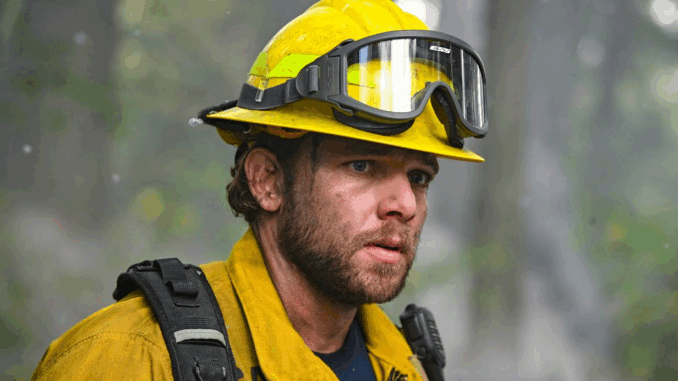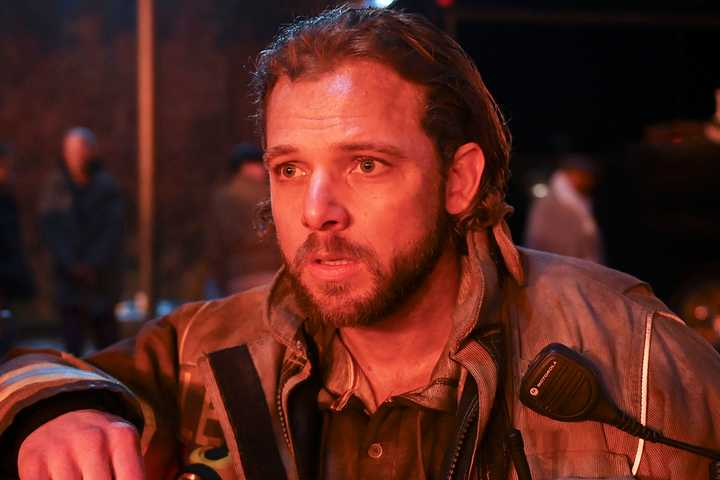
When a fictional fire on Fire Country shares a name with a real, devastating fire event, fans notice. And most importantly they ask questions. That’s exactly what happened with the Bella Vista Fire. Viewers started comparing what they saw on screen with real life, wondering: Was this based on something real? Did the show tie into real communities?
Max Thieriot, co-creator and star of Fire Country, recently addressed the confusion head-on. His message? He had no part in that conversation and he wants fans to understand the boundary between story and reality.
Let’s dig into what he said, why the controversy sparked, and what it means for Fire Country’s future.
What Is the Bella Vista Fire Controversy?
The Name That Sparked Debate
When Fire Country Season 3 introduced a catastrophic blaze named the “Bella Vista Fire,” fans immediately drew parallels to real fires in California. Bella Vista is a real town, and fires have ravaged parts of the state in recent years. So the shared name felt loaded.
Social Media Backlash & Concern
Many viewers took to social media, accusing the show of insensitivity. Some asked if it was a dramatization of real-life events, while others feared the show was capitalizing on real suffering. The backlash wasn’t huge—but for a show that deals with fire, loss, and community, the optics were delicate.
Why It Became a Bigger Deal
When entertainment overlaps with reality, people get protective. Fire communities, especially in Western states, live with the trauma of real fires year after year. They tend to see anything fictional as a commentary. Fire Country has always walked that line—telling dramatic stories while reflecting very real stakes. Bella Vista brought that tension into sharper focus.

Max Thieriot’s Response: “I Wasn’t a Part of That Conversation”
Clarifying His Role
Max addressed the backlash by making one thing clear: he was never involved in naming that fire. He said he wasn’t part of the conversation. That doesn’t mean the show ignored responsibility—it means that parts of the storyline were developed by other writers or producers.
Separation of Show Creation vs. Real-World Parallels
He acknowledged that fans might see connections, especially with how real fires affect communities. But he emphasized that Fire Country is fiction. The writers create narratives inspired by themes—not by specific events. The show has always been about metaphor, not direct representation.
Empathy Over Explanation
Max didn’t just distance the show from controversy—he expressed empathy. He recognized what real fire survivors might feel seeing a familiar name used fictionally. He asked fans to understand that while the show tells dramatic stories about fire, it doesn’t presume to speak for those who’ve lived through real devastation.
Why Fans Felt Tension Between Fiction & Reality
Real Fires, Real Pain
When smoke and ash are part of people’s real lives, even fictional fires carry weight. Names like Bella Vista, Shasta, Paradise, and more are etched into collective memory. Using them on screen triggers emotion.
Suspicion Over Storytelling
Viewers asked: Are they using our stories to entertain? Or more harshly: Are they profiting from tragedy? In times of trauma, enough parallels can feel exploitative—even if unintentional.
Power of Naming
Naming is powerful. A name connects place, memory, identity. To use a name shared with real towns or disasters risks blurring lines—even if creators never intended to.
Inside the Show’s Writing Process (What Max Implies)
Collaborative Writing, Separate Decisions
Television writing is rarely the work of one person. In multiseason shows especially, story arcs, episode beats, and even names often come from writers’ rooms. Max’s comment suggests that Bella Vista’s naming came from elsewhere in that collaborative process.
Themes Over Specifics
The showrunners focus on themes—rescue, redemption, community, sacrifice—not literal events. The Bella Vista Fire may have been selected for its symbolic resonance rather than as an homage to a real tragedy.
Lines of Creative Control
Even as co-creator, Max doesn’t necessarily control every detail. Especially in a large production, certain decisions—especially midseason plot points—can originate from network notes, writers, or showrunners not involved in the initial concept.
The Meta Question: Can Fiction Use Real-World Names?
Creative Freedom vs. Respect
Writers often borrow names or ideas—towns, disasters, historical references—to ground fiction in something believable. But there’s a difference between using a generic name and a specific name tied to real suffering.
Precedents in Film & TV
Many shows have drawn from real events without direct allusions—think Law & Order “ripped from the headlines” disclaimers. Sometimes that comes with disclaimers; other times creators rely on the audience’s sense of fiction.
Best Practice: Sensitivity & Disclosure
Some creators add disclaimers or alter names enough to avoid confusion. Others engage with communities to ensure respectful portrayal. By clarifying his noninvolvement, Max is choosing transparency rather than pretense.
How This Affects Fire Country’s Legacy
Trust with the Audience
Fans often feel ownership over shows they love. When controversy hits, transparency becomes vital. Max’s response shows he takes that trust seriously. He didn’t deflect—he clarified his position.
Future Storylines & Names
Writers will likely be more cautious with naming moving forward. Even symbolic or metaphorical names may be scrutinized. The show already deals with real stakes; creators may err on the side of distance to avoid future backlash.
Engaging Fire-Affected Communities
The Bella Vista controversy could push the show to be more collaborative, even consulting fire survivors when telling stories. That inclusion can deepen authenticity and avoid painful missteps.
Comparative Moments in TV That Stirred Public Debate
When Fiction Mirrors Reality
Recall when Grey’s Anatomy used hospital names similar to real ones. Or This Is Us referencing real-life tragedies. Some viewers applauded the authenticity; others bristled at perceived appropriation.
Creators Respond
In many cases, writers respond with disclaimers, interviews, or public statements. For example, Narcos and Bosch writers have spoken about separating drama from real criminals. Max’s approach—owning what he did and didn’t do—is a form of healthy dialogue.
Lessons for Storytellers & Audiences Alike
Storytelling Pays the Price of Impact
When you tell stories about fire, tragedy, and survival, people hear echoes. Writers must be aware their choices—names, plots, visuals—can ripple beyond the screen.
The Power of Words
A name isn’t just a label. It carries history, memory, identity. Creators wield power when they choose them. The Bella Vista name controversy underscores how sensitive that choice can be.
Dialogue is Better Than Silence
Max didn’t ignore criticism or let rumors spread unchecked. By addressing it head-on—even to clarify what he didn’t control—he kept lines of trust open. That can heal more than hiding behind silence.
What Fans Should Watch for Moving Forward
Naming Sensitivity in Future Episodes
Listen—town names, fire names, landmarks—watch how the show approaches them. Will they trend toward fictional geography more rigidly?
Story Arcs That Honor Reality
Look for storylines that acknowledge the weight of fire trauma—evacuations, PTSD, community rebuilding—not just action rescue sequences.
Behind-the-Scenes Transparency
Will writers or showrunners share their creative decisions? Maybe we’ll see more behind-the-scenes content or interviews explaining why they chose a name.
Community Engagement
Will the show consult fire survivors, communities with wildfire history, or first responders? That could build deeper legitimacy.
Conclusion: Fiction, Flames & the Boundaries That Hold It All
Max Thieriot’s statement—“I wasn’t a part of that conversation”—does more than distance him from controversy. It reveals a thoughtful creator who understands that while Fire Country tells stories about fire, it doesn’t claim ownership over real lives.
The Bella Vista Fire backlash reminds us that in storytelling, resonance carries weight. Audiences don’t just watch—they bring their memories, their losses, their identities. When fiction brushes close to reality, creators must choose empathy, clarity, and respect.
Max’s response didn’t deny impact—he acknowledged confusion, separated fiction from fact, and kept the door open for dialogue. That might be the most important conversation Fire Country has yet to have.
